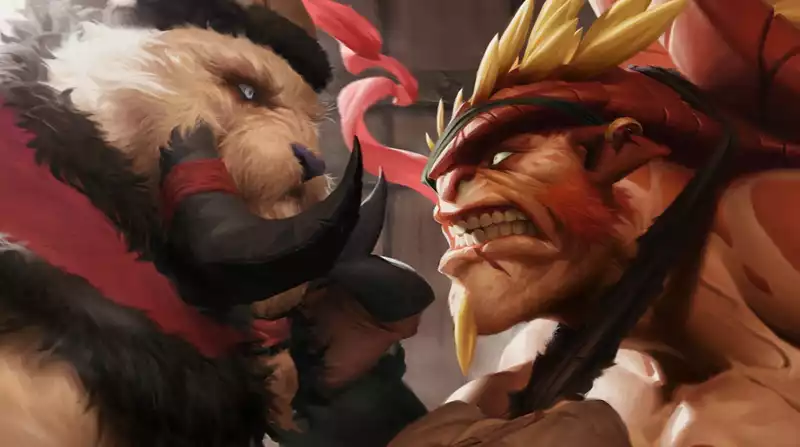When Will Bindloss reviewed "Artifact," he said, "Cost-effectiveness is going to be a big factor for a lot of people looking to buy this game. He wasn't wrong: what kept many away from Valve's card game was the $20 base price and the real-money card marketplace, although the "Build Your Legend" update offered a free card pack as a level-up reward, that was not enough. The $20 purchase meant that players had to be convinced of the value of the Artifact. In a game as complex as this one, convincing was not easy.
"I wish it had been better received," said Richard Garfield, the Artifact's designer, when asked what he thinks of it now.
"But I'm very happy with the final design, it was a pleasure working with everyone at Valve, they are very smart people and they took my design direction seriously.
Currently, Garfield is working as a co-designer and consultant on Roguebook, a roguelike deck builder being developed by Abrakam, the company behind Faeria.
"We wanted to avoid manipulating people," Garfield says of the decision not to make Artifact a free-to-play game with daily login rewards and various typical techniques used to keep players playing and buying card packs. He talks about the decision to make Hearthstone a free-to-play game. "There were a lot of people on the team who didn't like the Hearthstone approach. Much of that was avoided with good intentions, but not always to good effect. I think a lot of the difference between what was in their heads and what the players wanted was a marketing issue that wasn't done"
.
Prior to launch, Valve spent time demonstrating Artifact's complex gameplay, showing off its built-in tournament system and integration with Dota. When players began criticizing its cost, Valve explained changes to the draft mode in a blog post and announced that unwanted cards could be recycled into event tickets. Still, it was not enough.
"It's always difficult to create different revenue models," Garfield said. And that is partially my fault. I liked what they were trying to do with the revenue model, even if I didn't agree with it.
He still plays a lot of digital card games and admires "Monster Train" and "Slay the Spire," but when Garfield sees free-to-play ones, he "guesses what the revenue model is" and "feels disadvantaged by not paying for He says that he often wants to ignore it altogether because he doesn't want to "feel" or "suffer through this or that.
Garfield is no longer working on Artifact, but he is keeping a close eye on the development of the 2.0 version, which is currently in beta. He says, "We've actually playtested it. I've actually playtested it," he said. "I keep in touch with them, and they send me builds every once in a while. I don't think the game design was the fundamental problem in the first place.
You can read Garfield's thoughts on current trends in deckbuilders and the differences between Roguebook in next week's PC Gamer.


Comments